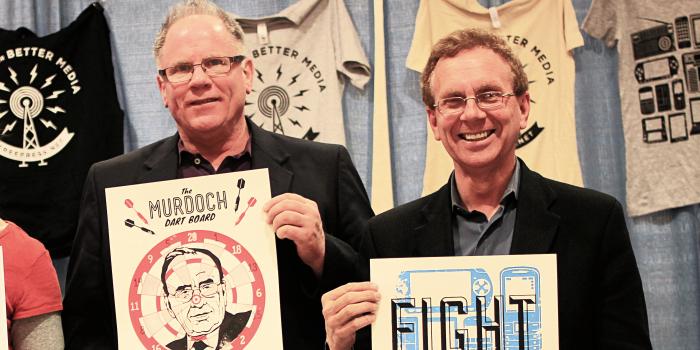Free Press Action Fund Welcomes the Community Broadband Act
WASHINGTON — On Thursday, Sens. Cory Booker (D-N.J.), Ed Markey (D-Mass.) and Claire McCaskill (D-Mo.) introduced the Community Broadband Act to put an end to protectionist state laws that prohibit cities and towns from creating homegrown broadband facilities.
A growing number of communities are looking to build their own networks as an alternative to the pricey and inadequate Internet services offered by communications giants like AT&T, Comcast and Verizon. But these companies have convinced legislators to pass 19 state-level laws that restrict communities from building such networks. The Community Broadband Act would nullify existing laws and make it illegal for states to prohibit municipal networks in the future.
Free Press Action Fund President and CEO Craig Aaron made the following statement:
"We welcome this legislation and urge other members of Congress to support communities' right to build their own networks. By removing these protectionist state laws, Congress will enable cities to create local alternatives in a broadband marketplace that has far too few options.
"The industry's monopoly-minded campaign to regulate away local competition is one of the worst examples of its undue influence in policymaking. Internet innovation happens at the local level, when you let cities like Chattanooga, Tennessee, and Cedar Falls, Iowa, experiment with their own high-speed networks. Innovation stalls when you let cable companies control access and lock out competition.
"Offering choice in the high-speed Internet marketplace has been a boon for local economies. Every American home should be connected to high-speed fiber; every person should be able to use that infrastructure to access a diverse range of affordable high-quality communications services. This legislation gives communities much more control over their communications and should become the law."




